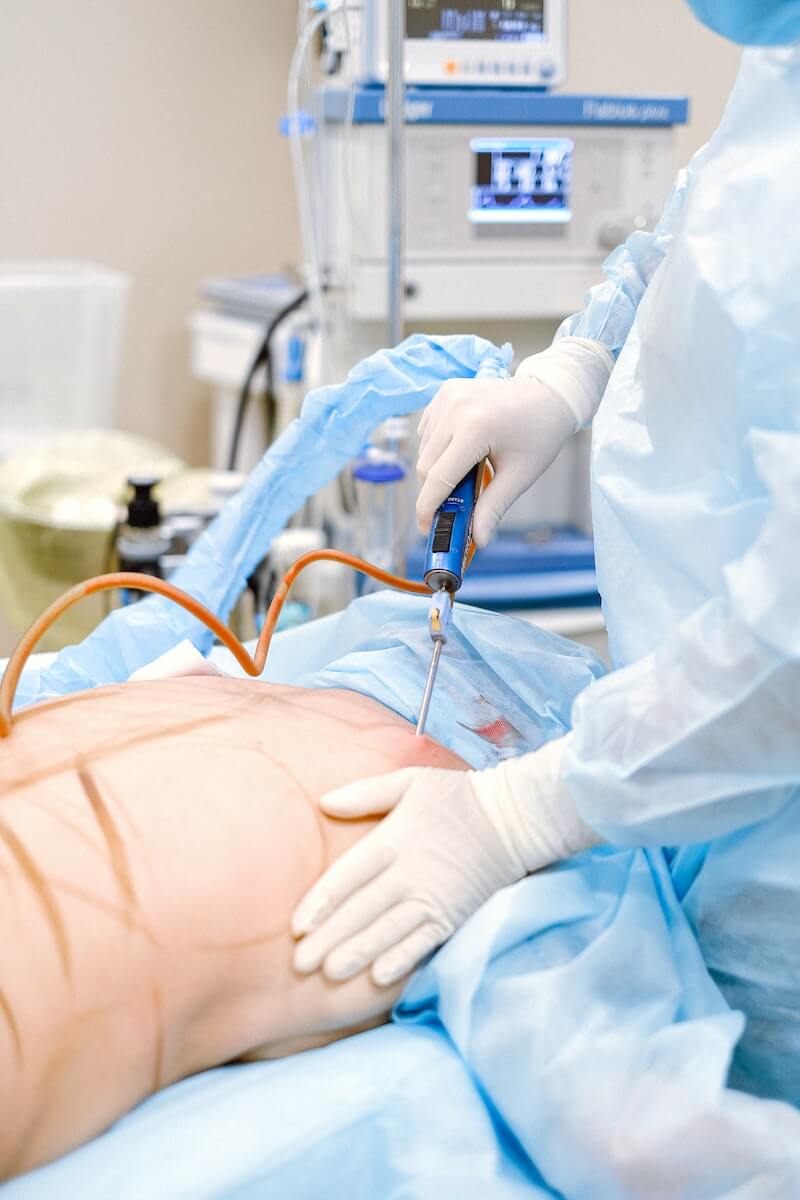INDIANAPOLIS — An anti-obesity injection could create an alternative to expensive surgeries for patients seeking dramatic weight loss. The jab also avoids the side-effects of nausea and vomiting, common with current weight loss and diabetes drugs, researchers say. Experiments on rats found the revolutionary treatment reduced eating and boosted calorie burn.
“Obesity and diabetes were the pandemic before the COVID-19 pandemic,” says Robert Doyle, Ph.D., one of the two principal investigators on the project, along with Christian Roth, M.D., in a media release. “They are a massive problem, and they are projected to only get worse.”
More than four in 10 adults in the United States classify as obese, which means they have a BMI of 30 or above. Obesity can be physically debilitating and lead to severe and potentially life-threatening conditions — such as heart disease or even cancer.
What are the downsides of weight loss surgery?
Gastric bypass and other related procedures, known collectively as bariatric surgery, offer one solution for overweight patients. They often result in lasting weight loss and even remission of diabetes. However, these operations carry risks, are unsuitable for some people, and unavailable for many of the hundreds of millions of people worldwide who are obese or diabetic.
As an alternative, Prof. Doyle believes patients could tackle their metabolic problems with a drug that replicates the long-term benefits of surgery. Those benefits have a link to a post-bypass surgery change in the gut’s secretion levels of hormones that signal fullness, curb appetite, and normalize blood sugar. Current drugs primarily activate cellular receptors in the pancreas and brain.
“Within a year, 80 to 90% of people who start on these drugs are no longer taking them,” Prof. Doyle adds.

The new drug significantly curbs appetite
The new therapy, dubbed GEP44, caused obese lab animals to eat up to 80 percent less than they would typically. By the end of one 16-day trial, they lost an average of 12 percent of their weight — more than three times the amount lost by peers taking the approved anti-obesity drug liraglutide.
In contrast to those taking liraglutide, tests on rats and shrews (mammals capable of vomiting) revealed no sign of nausea. Further analysis showed the benefits of GEP44 can be traced not only to decreased eating, but also to higher energy expenditure in the form of increased movement, heart rate, or body temperature.
The team has also designed a cocktail with a much longer half-life – meaning patients could inject it only once or twice a week instead of multiple times a day. Rats receiving the next-generation peptide kept their new, slimmer physique even after treatment ended – which often isn’t the case with currently-approved drugs.
Blood sugar dropped by pulling glucose into muscle tissue, where it can act as fuel. Pancreatic cells turn into insulin-producing cells, helping replace those damaged by diabetes.
The injection may have other noteworthy perks
The injection also prevented craving for opioids such as fentanyl in rats. If that also works in humans, it could help addicts quit illicit drugs or fend off a relapse. Scientists are now planning tests on primates.
“For a long time, we didn’t think you could separate weight reduction from nausea and vomiting, because they’re linked to the exact same part of the brain,” Doyle says.
Uncoupled, those two pathways have implications for chemotherapy, which causes similar side-effects.
“What if we could maintain the benefit of chemotherapy drugs but tell the part of the brain that causes vomiting and nausea to knock it off? Then we could dose patients at a higher level, so they would have a better prognosis, and they would also have a better quality of life while undergoing chemotherapy,” the study author concludes.
The team presented their findings at the spring meeting of the American Chemical Society (ACS).
South West News Service writer Mark Waghorn contributed to this report.


12% of your weight can be easily achieved with diet and exercise. This drug sounds like money making overkill.
More jabs to get people hooked on signing up to corrupt pharma.
Fasting is the answer without putting unknown junk into your body.